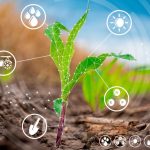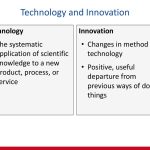Revolutionary Advancements: Unleashing The Power Of Innovation Technology For Agriculture – Click For Action!
Innovation Technology for Agriculture: Advancing the Future of Farming
Introduction
Dear Readers,
3 Picture Gallery: Revolutionary Advancements: Unleashing The Power Of Innovation Technology For Agriculture – Click For Action!
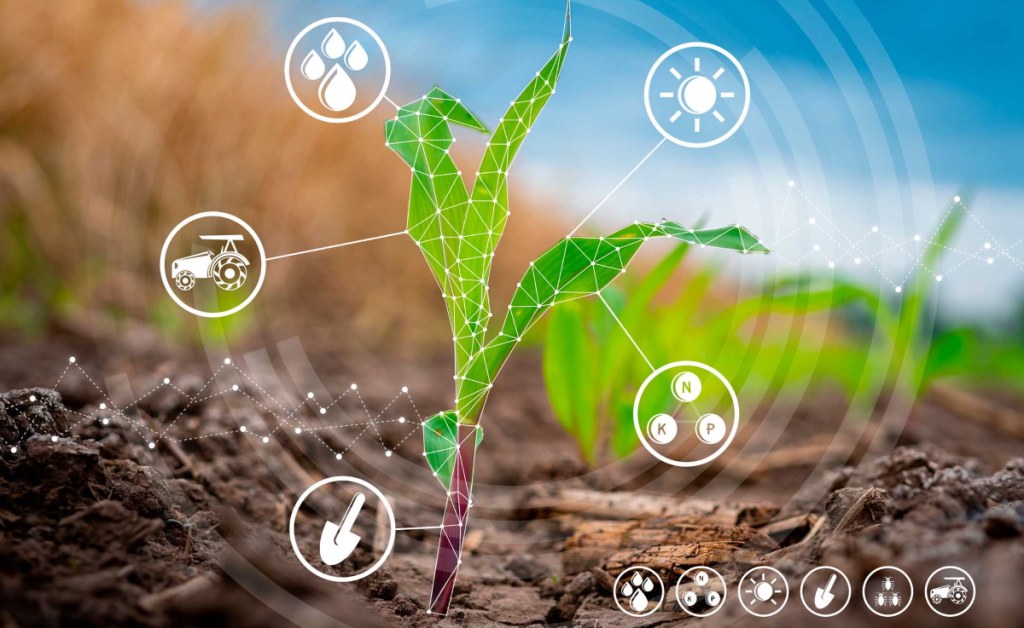
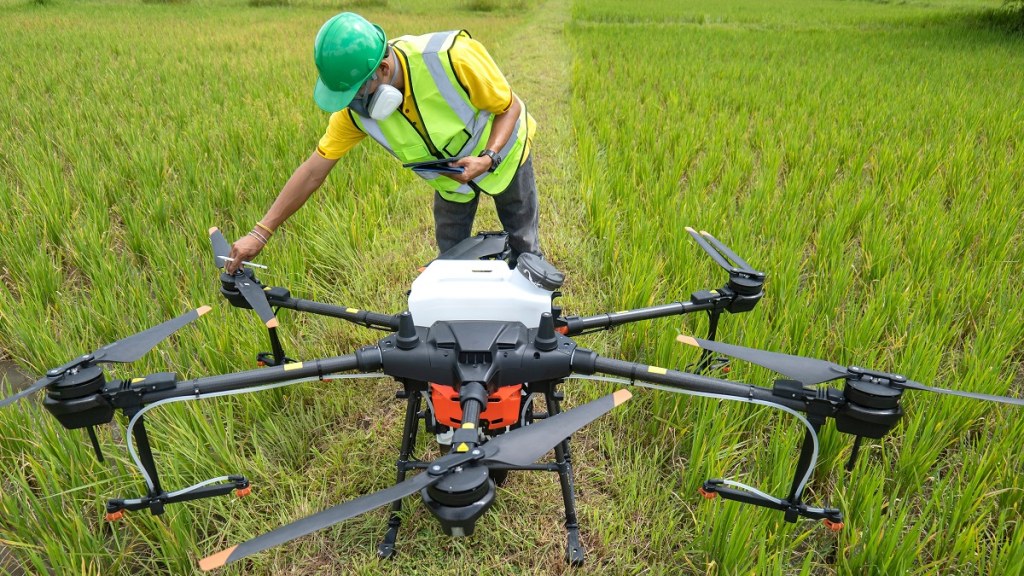
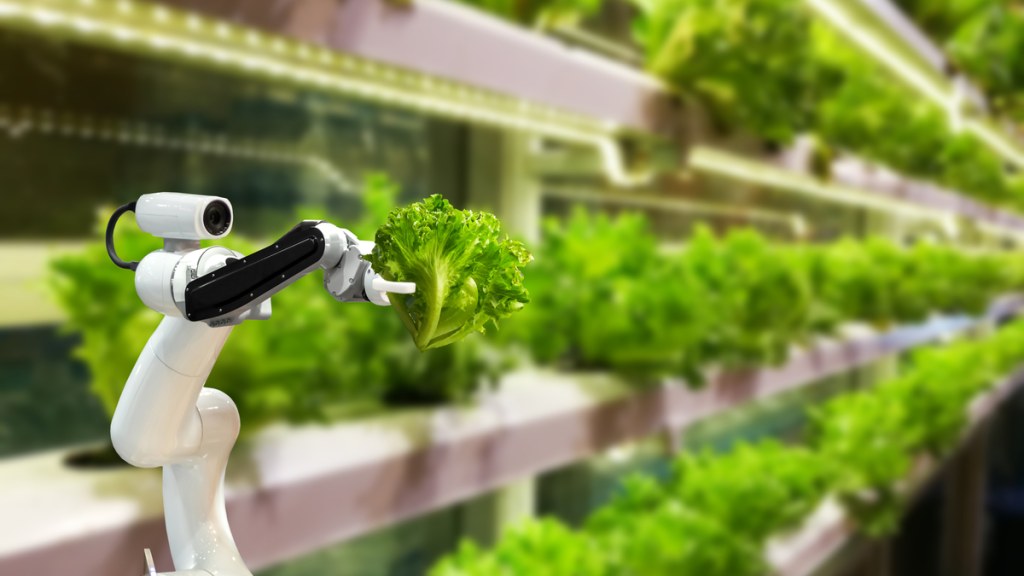
Welcome to this informative article that explores the fascinating world of innovation technology for agriculture. In today’s ever-evolving society, technology has become an integral part of our lives, and the agricultural industry is no exception. By leveraging cutting-edge advancements, farmers and agricultural professionals are revolutionizing the way they cultivate crops, raise livestock, and manage the overall agricultural landscape.

Image Source: agroeconomics.az
In this article, we will delve into the various aspects of innovation technology for agriculture, highlighting its significance, benefits, and potential challenges. Join us as we uncover the what, who, when, where, why, and how of this transformative field, and explore the countless opportunities it presents for the future of farming.
What is Innovation Technology for Agriculture?
Innovation technology for agriculture refers to the application of advanced technological solutions to optimize agricultural processes, enhance production yields, and promote sustainable farming practices. It encompasses a wide range of innovative tools, systems, and techniques that harness the power of modern technology to address the unique challenges faced by the agricultural sector.
✨Key Point:✨ Innovation technology for agriculture represents a paradigm shift in the way farming is conducted, bringing countless benefits and opportunities for increased efficiency and sustainability.
Who Benefits from Innovation Technology for Agriculture?

Image Source: unctad.org
The adoption of innovation technology in agriculture offers significant advantages to various stakeholders within the industry:
Farmers and Agricultural Professionals: Innovation technology empowers farmers and agricultural professionals by providing them with tools to make informed decisions, optimize resource allocation, and streamline their operations.
Consumers: Through innovative farming practices enabled by technology, consumers can enjoy access to more nutritious and high-quality produce while supporting sustainable agricultural practices.
Environmentalists: Innovation technology for agriculture promotes sustainable farming practices, reducing environmental impact through efficient resource management, precision farming techniques, and minimized use of chemicals.
Researchers and Scientists: Technology-driven agricultural solutions facilitate research and experimentation, enabling scientists to develop new methods, improve crop yields, and combat challenges such as pests and diseases.
✨Key Point:✨ Innovation technology for agriculture benefits not only farmers but also consumers, environmentalists, and researchers, fostering a more sustainable and efficient agricultural ecosystem.
When and Where is Innovation Technology for Agriculture Used?

Image Source: raconteur.net
Innovation technology is being utilized across the globe, in both developed and developing regions, to enhance agricultural practices. Its applications span various agricultural domains, including:
Precision Farming: Leveraging data-driven insights, precision farming applies technology to optimize farming techniques, increase productivity, and minimize resource wastage.
Smart Irrigation Systems: By utilizing sensors and automation, smart irrigation systems prevent water wastage, ensuring efficient water usage and reducing environmental impact.
Drone Technology: Drones equipped with specialized cameras and sensors are utilized for crop monitoring, pest control, and even aerial seeding, offering farmers a bird’s-eye view of their fields.
Vertical Farming: Vertical farming takes advantage of indoor farming techniques, utilizing controlled environments, artificial lighting, and precise nutrient delivery to maximize crop yields while conserving space.
✨Key Point:✨ Innovation technology for agriculture is employed worldwide and encompasses various domains, including precision farming, smart irrigation systems, drones, and vertical farming.
Why is Innovation Technology for Agriculture Important?
The importance of innovation technology for agriculture cannot be overstated. Here are some key reasons why this field plays a crucial role in shaping the future of farming:
Increased Efficiency: By automating and optimizing farming techniques, innovation technology enables farmers to achieve higher productivity while reducing labor and resource requirements.
Sustainability: Innovation technology allows for the implementation of sustainable farming practices, reducing environmental impact, conserving resources, and fostering long-term agricultural viability.
Food Security: With the world’s population on the rise, innovation technology for agriculture plays a vital role in ensuring food security by maximizing crop yields and minimizing post-harvest losses.
Resilience to Climate Change: The agricultural industry faces numerous challenges due to climate change. Innovation technology equips farmers with tools to adapt to changing conditions and mitigate associated risks.
✨Key Point:✨ Innovation technology for agriculture is important for increased efficiency, sustainability, food security, and resilience to climate change.
How Does Innovation Technology for Agriculture Work?
Innovation technology for agriculture operates through the integration of various cutting-edge solutions:
Internet of Things (IoT): IoT devices and sensors collect data from the agricultural environment, enabling real-time monitoring, analysis, and decision-making.
Big Data and Analytics: By leveraging big data and advanced analytics, agricultural professionals can gain valuable insights, optimize resource allocation, and make data-driven decisions.
Artificial Intelligence (AI): AI-powered algorithms and machine learning models help farmers predict crop diseases, optimize irrigation schedules, detect plant nutrient deficiencies, and more.
Robotics and Automation: Robotic systems automate labor-intensive tasks such as harvesting, planting, and weeding, reducing reliance on manual labor and increasing efficiency.
✨Key Point:✨ Innovation technology for agriculture combines IoT, big data and analytics, AI, and robotics to optimize agricultural processes and decision-making.
Advantages and Disadvantages of Innovation Technology for Agriculture
As with any technological advancements, innovation technology for agriculture presents both advantages and disadvantages:
Advantages:
Increased Crop Yields: Through optimized farming techniques and precise resource management, innovation technology enhances crop yields, ensuring food security and economic stability.
Sustainable Farming Practices: By minimizing chemical usage, conserving resources, and reducing environmental impact, innovation technology promotes sustainable farming practices.
Cost Savings: Automation and optimization of farming processes lead to reduced labor and resource requirements, resulting in cost savings for farmers.
Improved Decision-Making: Data-driven insights and real-time monitoring enable farmers to make informed decisions and respond promptly to changing conditions.
Enhanced Food Quality: Innovation technology ensures the production of high-quality, nutritious crops, meeting consumer demands for healthy and safe food.
Disadvantages:
Initial Investment Costs: Implementing innovation technology in agriculture may require significant upfront investments, which can be a barrier for small-scale farmers.
Technological Complexity: Farmers must acquire the necessary skills and knowledge to effectively utilize innovation technology, which may pose a challenge for some.
Data Security and Privacy Concerns: The collection and utilization of sensitive agricultural data raise concerns about data security and privacy breaches, requiring robust measures to safeguard information.
Dependency on Technology: Overreliance on technology may leave farmers vulnerable to system failures, cyber threats, or disruptions in the event of power outages.
Unequal Access: Limited access to innovation technology may create disparities between large-scale commercial farms and small-scale farmers, exacerbating existing socioeconomic inequities.
✨Key Point:✨ Innovation technology for agriculture brings advantages such as increased crop yields, sustainable practices, cost savings, improved decision-making, and enhanced food quality, while also posing challenges such as initial investment costs, technological complexity, data security concerns, dependency on technology, and unequal access.
Frequently Asked Questions (FAQ)
Q1: How can innovation technology help farmers optimize resource allocation?
By utilizing data-driven insights and advanced analytics, innovation technology enables farmers to optimize resource allocation based on specific crop requirements, environmental conditions, and market demands. This ensures efficient utilization of resources, minimizing waste and maximizing productivity.
Q2: What role does innovation technology play in sustainable agriculture?
Innovation technology promotes sustainable agriculture by minimizing chemical usage, conserving resources, reducing environmental impact, and fostering responsible farming practices. It enables farmers to adopt precision techniques, such as targeted pesticide application and controlled irrigation, ensuring optimal resource utilization while minimizing negative ecological effects.
Q3: Can innovation technology help farmers adapt to climate change?
Yes, innovation technology equips farmers with tools and strategies to mitigate the impacts of climate change. Through real-time monitoring, predictive analytics, and automated systems, farmers can adjust their farming practices, optimize irrigation schedules, and make informed decisions to minimize adverse effects on crop production.
Q4: Does innovation technology benefit small-scale farmers as well?
While there may be initial challenges in terms of affordability and technical expertise, innovation technology has the potential to benefit small-scale farmers by improving productivity, reducing labor requirements, and enhancing market access. Collaborative efforts, such as partnerships and government initiatives, can help bridge the gap and create equal opportunities for all farmers.
Q5: What measures are in place to ensure the security of agricultural data?
The agricultural industry understands the importance of data security and privacy. Robust cybersecurity measures, encryption techniques, and strict access controls are implemented to safeguard sensitive agricultural data. Additionally, regulations and guidelines are continuously evolving to address emerging challenges and maintain data integrity.
Conclusion: Embracing the Future of Farming
Dear Readers,
As we conclude this exploration into innovation technology for agriculture, we hope you are inspired by the immense potential it holds for transforming the agricultural landscape. The integration of technology into farming practices not only enhances efficiency and productivity but also fosters sustainability and resilience in the face of environmental challenges.
While innovation technology presents its fair share of advantages and challenges, it is crucial to embrace its possibilities and work towards ensuring equal access and benefits for all farmers. By harnessing the power of innovation, we can pave the way for a brighter and more sustainable future in agriculture.
Final Remarks: Embracing Innovation with Caution
Dear Readers,
As we embark on this journey of innovation technology for agriculture, it is essential to approach it with caution and mindfulness. While technology offers immense opportunities, we must remember that it is a tool that should be utilized responsibly.
The adoption of innovation technology in agriculture should be accompanied by adequate support, training, and accessibility to ensure that all farmers can benefit from its potential. Collaboration between stakeholders, including farmers, industry experts, policymakers, and researchers, is vital to address challenges and bridge the digital divide.
Let us embrace innovation in agriculture with open minds, recognizing its immense potential to revolutionize farming practices, improve livelihoods, and ensure sustainable food production for generations to come.
This post topic: Technology Innovation
